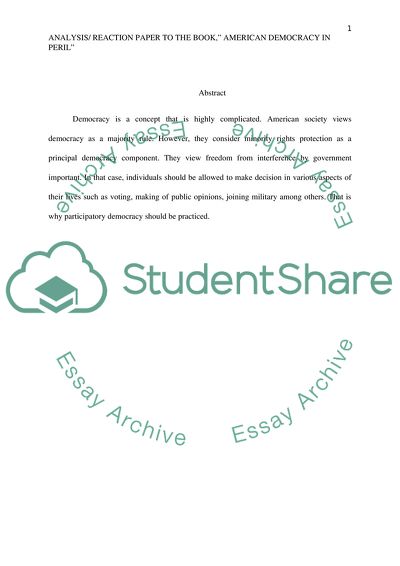Cite this document
(“Analysis of American Democracy In Peril Book Report/Review - 1”, n.d.)
Analysis of American Democracy In Peril Book Report/Review - 1. Retrieved from https://studentshare.org/history/1771630-analysisreaction-paper-to-the-book-american-democracy-in-peril
Analysis of American Democracy In Peril Book Report/Review - 1. Retrieved from https://studentshare.org/history/1771630-analysisreaction-paper-to-the-book-american-democracy-in-peril
(Analysis of American Democracy In Peril Book Report/Review - 1)
Analysis of American Democracy In Peril Book Report/Review - 1. https://studentshare.org/history/1771630-analysisreaction-paper-to-the-book-american-democracy-in-peril.
Analysis of American Democracy In Peril Book Report/Review - 1. https://studentshare.org/history/1771630-analysisreaction-paper-to-the-book-american-democracy-in-peril.
“Analysis of American Democracy In Peril Book Report/Review - 1”, n.d. https://studentshare.org/history/1771630-analysisreaction-paper-to-the-book-american-democracy-in-peril.


